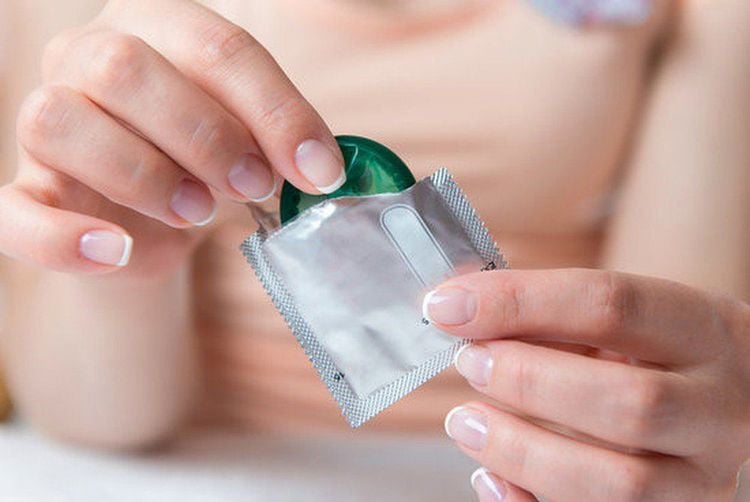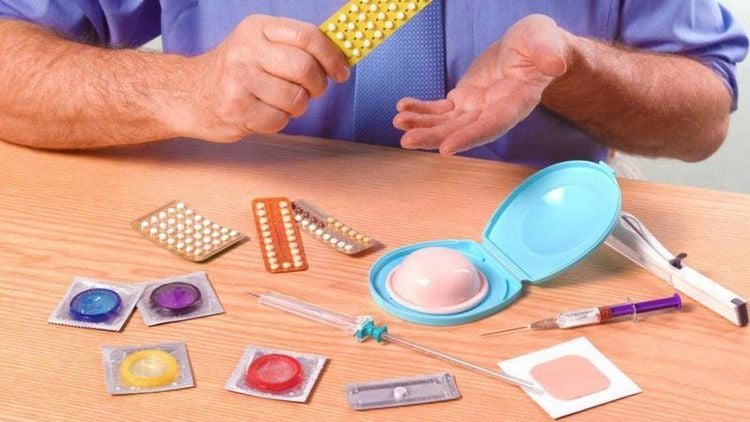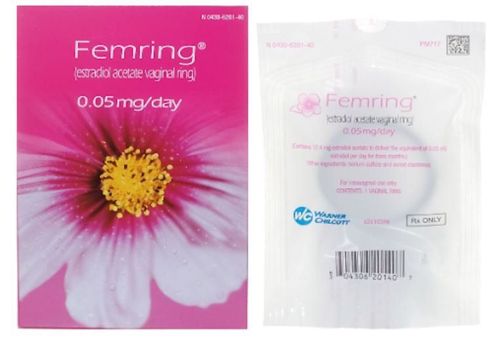This is an automatically translated article.
The article is professionally consulted by Specialist Doctor I Nguyen Thi Man - Department of Obstetrics and Gynecology - Vinmec International Hospital Da Nang.
Although the chances of premenopausal women getting pregnant are lower than younger women, pregnancy is still possible during this transition period. Very few premenopausal women wish to become pregnant due to the health risks of mother and baby. Therefore, contraception is very important for premenopausal women.
1. Can I get pregnant after perimenopause?
The answer is yes. Despite the decline in fertility during perimenopause, you can still get pregnant so if you don't want to get pregnant you should use some form of reproductive contraception until you reach your age. Menopause. Menopause means you have not had a period for 12 consecutive months, when you reach menopause, you will no longer be able to get pregnant because there is no ovulation.For some women, getting pregnant can be difficult once they are in their late 30s to early 40s due to a decline in fertility. If you are trying to get pregnant, assisted reproductive methods can help you get pregnant safely.
2. Can you get pregnant after menopause?

Trắc nghiệm: Bạn đã biết cách tránh thai an toàn chưa?
Có rất nhiều biện pháp tránh thai an toàn nhưng không phải ai cũng biết được điều đó. Trả lời đúng những câu hỏi trắc nghiệm dưới đây chứng tỏ bạn có kiến thức tốt về các biện pháp ngừa thai an toàn.3. Now that I've started menopause, should I take birth control?
If you have not yet reached menopause, you should continue to use birth control. After menopause, you should continue to practice safe sex techniques by using latex condoms to reduce your risk of sexually transmitted infections.4. I am perimenopausal and have been told to take low-dose birth control pills. Why?
Low-dose oral contraceptives are commonly used in premenopausal women because they help regulate the menstrual cycle and prevent pregnancy. Compared with conventional oral contraceptives, low-dose estrogen pills are safer for premenopausal women. While conventional birth control pills contain 30 to 50 micrograms of estrogen, these low-dose pills contain only 0.3 to 0.45 micrograms and can be increased as needed.5. What are the benefits of taking low-dose birth control pills?
In addition to preventing pregnancy, medication can often correct heavy or irregular menstrual symptoms and may protect against ovarian and uterine cancer. Medicines can also prevent bone loss, thereby preventing osteoporosis. However, women with a history of breast cancer, blood clots or heart disease or women who smoke should not use low-dose oral contraceptives.6. Contraceptives at perimenopause

Estrogen-progestin pills in the form of an oral pill or ring Progestin medicine, such as levonorgestrel (Mirena, Skyla), implanted birth control pills etonogestrel (Nexplanon) subcutaneous transplantation, or progestin-only oral contraceptives also help reduce the risk of endometrial cancer in women. The estrogen-progestin patch is used if you are not at risk for blood clots or other bleeding disorders. However, caution should be exercised when using this patch because one patch contains both estrogen and progestin due to an increased risk of blood clots compared with other forms of estrogen-progestin contraceptives in the form of pills or vaginal rings. Permanent sterilization techniques such as tubal ligation Whatever method you choose, doctors generally recommend that you continue contraception during perimenopause and for about 12 consecutive months after your period has stopped completely. . Currently, Vinmec International General Hospital has a package of pre-menopausal health examination and counseling. When registering for an examination package, customers will be examined and consulted with a specialist in Gynecology; Perform tests to assess hormonal status such as:
Gynecological examination Gynecological examination, breast examination Transabdominal ultrasound of uterus and ovaries Taking samples for cervical-vaginal cytology Mammogram (2 sides) Osteoporosis Measurement Perform other tests to detect premenopausal conditions, if any. Target audience:
Women aged 45-55, possibly younger (when suffering from premature ovarian failure), menstrual irregularities, sexual disorders, suspected endocrine disorders, or need to use hormone replacement therapy, or want to prepare yourself for perimenopause and menopause.
Clients have risk factors such as smoking, long-term stress, undergoing cancer treatment, having surgery to remove 1 or 2 ovaries.
Customers have symptoms such as menstrual irregularities, sexual disorders, psychological changes, sleep
Please dial HOTLINE for more information or register for an appointment HERE. Download MyVinmec app to make appointments faster and to manage your bookings easily.
References: Mayoclinic.org and Webmd.com














